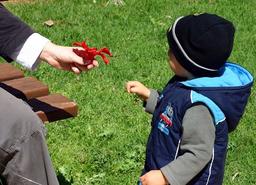
Developmental Psychology
Quiz by Ellycia Smalley
Feel free to use or edit a copy
includes Teacher and Student dashboards
Measure skillsfrom any curriculum
Measure skills
from any curriculum
Tag the questions with any skills you have. Your dashboard will track each student's mastery of each skill.
With a free account, teachers can
- edit the questions
- save a copy for later
- start a class game
- automatically assign follow-up activities based on students’ scores
- assign as homework
- share a link with colleagues
- print as a bubble sheet
20 questions
Show answers
- Q1What is the correct order for the stages in Piaget's theory of cognitive development?preoperational, sensorimotor, formal operational, concrete operationalpreoperational, sensorimotor, concrete operational, formal operationalsensorimotor, preoperational, formal operational, concrete operationalsensorimotor, preoperational, concrete operational, formal operational30s
- Q2Three-year-old Levi believes two beakers are holding the same amount of water when the beakers are the same exact size and shape, and the water levels are identical. However, when one of the beaker's water is transferred to a taller, thinner beaker, Levi then believes that the new beaker contains more water than the other original beaker. Levi apparently lacks aconcept of conservationsense of object permanencesense of secure attachmentconcept of habitation45s
- Q3Tara only thinks she needs to do her best at volleyball practice when her coach is watching. According to Kohlberg, Tara is showing what stage of morality?post-conventionalpre-conventionalconventionalunconventional30s
- Q4The psychological conflict "industry vs. inferiority" takes place in which of Erickson's Psychosocial stages development?PreschoolSchool ageYoung AdulthoodAdolescence20s
- Q5Which of the following is true of fluid intelligence?depends completely on the persongenerally increases with agegenerally decreases with agegenally stays the same with age20s
- Q6Amy gets in a minor car accident in her parent’s car, after they specifically asked her NOT to drive it that evening. When Tara’s parents arrive on the scene, they first ask if she’s okay. They tell her they love her. They wait until morning to discipline her actions, but they do enforce reasonable consequences. Tara’s parents most clearly exhibit which type of parenting?PermissiveAuthoritarianAuthoritativeUninvolved45s
- Q7What was Harry Harlow’s experiment?Testing children’s ability to understand conservationismTesting monkeys’ ability to understand conservationismTesting children’s reactions to caregivers and reasons for attachmentTesting monkeys’ reactions to caregivers and reasons for attachment20s
- Q8People who study physical, cognitive, and social changes throughout the human life are ...DoctorsFamily and Children TherapistTherapistDevelopmental Psychologist20s
- Q9Which of these is NOT an important aspect of development?When do children develop an ability?All of the above are important aspects of development.How do children develop?What abilities do children develop20s
- Q10Most developmentalists recognize that every characteristic we possess is due to...An interaction of nature and nurtureNatureNurtureNone of the above20s
- Q11Select the correct order of periods of prenatal development.Germinal, Embryonic, FetalGerminal, Fetal, EmbryonicEmbryonic, Fetal, GerminalEmbryonic, Germinal, Fetal20s
- Q12Which of these is NOT an enduring theme in child development?ParentingIndividual differences in developmentNature and NurtureThe active child20s
- Q13A child’s genotype is most influenced by...Child’s phenotypeParent’s phenotypeParent’s genotypeChild’s Environment20s
- Q14Although 3-year-old Austin happily explores the colorful toys located in the doctor’s office’s waiting room, he periodically returns to his mother’s side for brief moments. Austin is most clearly displaying what?Stranger anxietySecure attachmentAvoidant attachmentConservation30s
- Q15The process of developing a sense of identity during adolescence was highlighted by what developmental theory?Kohlberg’s moral development theoryErikson’s psychosocial development theoryHarlow’s attachment theoryPiaget’s cognitive development theory20s